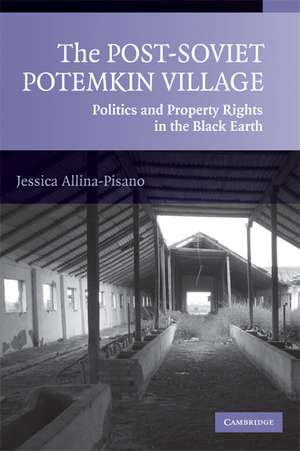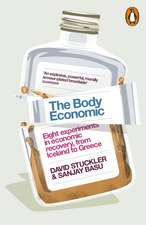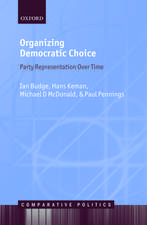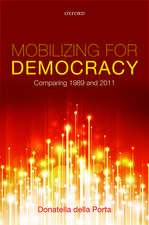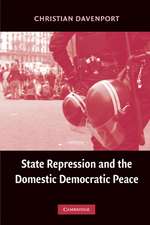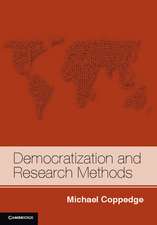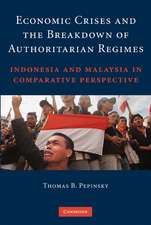The Post-Soviet Potemkin Village: Politics and Property Rights in the Black Earth
Autor Jessica Allina-Pisanoen Limba Engleză Paperback – 23 sep 2007
| Toate formatele și edițiile | Preț | Express |
|---|---|---|
| Paperback (1) | 283.03 lei 6-8 săpt. | |
| Cambridge University Press – 23 sep 2007 | 283.03 lei 6-8 săpt. | |
| Hardback (1) | 716.89 lei 6-8 săpt. | |
| Cambridge University Press – 23 sep 2007 | 716.89 lei 6-8 săpt. |
Preț: 283.03 lei
Nou
Puncte Express: 425
Preț estimativ în valută:
54.16€ • 56.70$ • 44.81£
54.16€ • 56.70$ • 44.81£
Carte tipărită la comandă
Livrare economică 07-21 aprilie
Preluare comenzi: 021 569.72.76
Specificații
ISBN-13: 9780521709316
ISBN-10: 0521709318
Pagini: 248
Ilustrații: 2 tables
Dimensiuni: 150 x 226 x 15 mm
Greutate: 0.34 kg
Ediția:New.
Editura: Cambridge University Press
Colecția Cambridge University Press
Locul publicării:New York, United States
ISBN-10: 0521709318
Pagini: 248
Ilustrații: 2 tables
Dimensiuni: 150 x 226 x 15 mm
Greutate: 0.34 kg
Ediția:New.
Editura: Cambridge University Press
Colecția Cambridge University Press
Locul publicării:New York, United States
Cuprins
Introduction: land reform in post-communist Europe; 1. Things fall apart; 2. Keeping the collectives; 3. The social origins of private farmers; 4. A return to regulation; 5. The politics of payment; 6. The facade; Conclusion: rural proletarians in the Potemkin village.
Recenzii
"This is an empirically rich study of land privatization in post-Soviet Ukraine and Russia that puts to rest some of the most fundamental assumptions underlining both theories and assessments of the political economy of post-communist transitions--for example, that privatization reduces the role of the state in the economy and that privatization transfers real property rights, benefits a broad stratum of the population, and boosts economic efficiency. Privatization did not redistribute land or power, partly because laws are paper tigers; local social and power structures reproduce themselves; and economic productivity requires capital and connections."
Valerie Bunce, Cornell University
"In this profound analysis of superficial property rights, Jessica Allina-Pisano transforms our understanding of post-communist economic development and the primacy of informal practices over formal institutions."
Anna Grzymala-Busse, University of Michigan
"Not only is Jessica Allina-Pisano’s book a fascinating journey of nine years providing us with insight into informal politics and economy in the post-Soviet countryside—it is an essential addition to the growing field of research examining the role of informal practices in shaping the post-communist world. This is the book you must read if you want to understand how land privatization has really worked in Russia and Ukraine."
Alena Ledeneva, University College London
"Allina-Pisano treats questions of capital importance not only for post-Soviet economies but for economic change world-wide: Why does property restitution not always produce more efficient and productive agriculture? How does privatization generate proletarianization, not prosperity? How did a program aimed at getting the state out of economic life instead intensify a state presence? This fascinating work will contribute significantly to debate on these urgent matters and should be widely read by scholars and policy-makers alike."
Katherine Verdery, The Graduate Center, City University of New York
"In this outstanding political ethnography, Jessica Allina-Pisano penetrates beneath the surface of rural life in post-Soviet Russia and Ukraine to show how local officials and farm directors utilized shifting property-rights regimes to assert their control over land. In the process, she brilliantly reveals why social relations in the post-Soviet countryside have come to resemble precisely what reformers had sought to overturn."
Mark R. Beissinger, Princeton University
Valerie Bunce, Cornell University
"In this profound analysis of superficial property rights, Jessica Allina-Pisano transforms our understanding of post-communist economic development and the primacy of informal practices over formal institutions."
Anna Grzymala-Busse, University of Michigan
"Not only is Jessica Allina-Pisano’s book a fascinating journey of nine years providing us with insight into informal politics and economy in the post-Soviet countryside—it is an essential addition to the growing field of research examining the role of informal practices in shaping the post-communist world. This is the book you must read if you want to understand how land privatization has really worked in Russia and Ukraine."
Alena Ledeneva, University College London
"Allina-Pisano treats questions of capital importance not only for post-Soviet economies but for economic change world-wide: Why does property restitution not always produce more efficient and productive agriculture? How does privatization generate proletarianization, not prosperity? How did a program aimed at getting the state out of economic life instead intensify a state presence? This fascinating work will contribute significantly to debate on these urgent matters and should be widely read by scholars and policy-makers alike."
Katherine Verdery, The Graduate Center, City University of New York
"In this outstanding political ethnography, Jessica Allina-Pisano penetrates beneath the surface of rural life in post-Soviet Russia and Ukraine to show how local officials and farm directors utilized shifting property-rights regimes to assert their control over land. In the process, she brilliantly reveals why social relations in the post-Soviet countryside have come to resemble precisely what reformers had sought to overturn."
Mark R. Beissinger, Princeton University
Notă biografică
Descriere
This book explains how the introduction of rural private property rights in Ukraine and Russia generated poverty.
